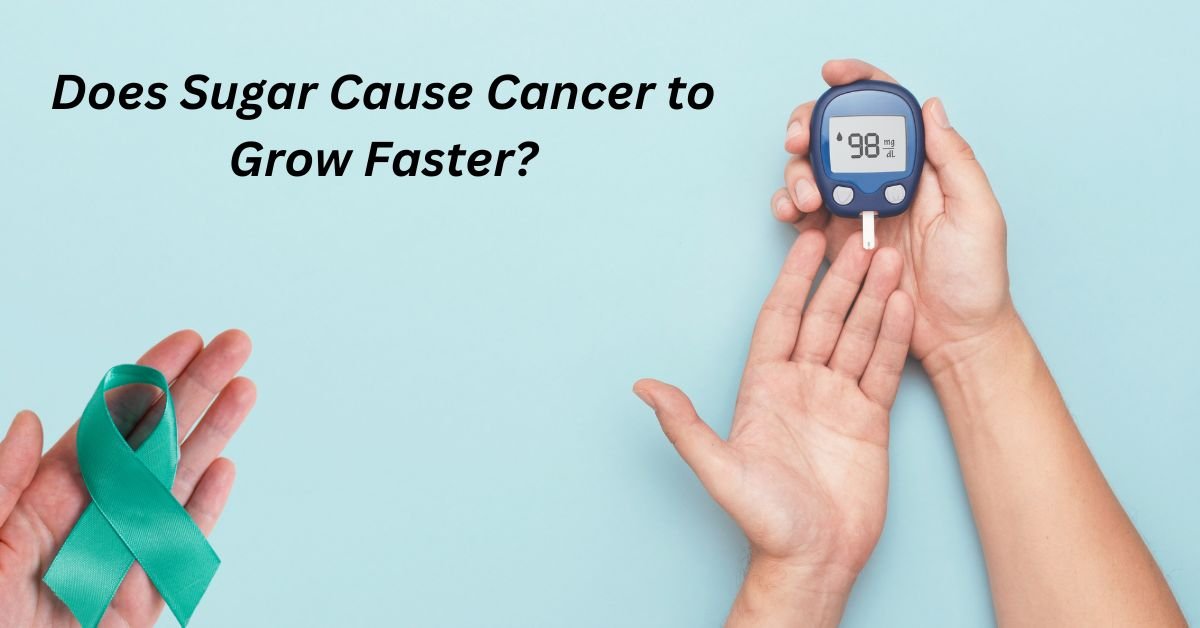
In recent years, the question of whether sugar causes cancer has been raised. There is a significant debate, due to the growing awareness of the impact of diet on overall health. As an oncologist, I often hear concerns from patients worried that consuming sugar might contribute to the growth or even cause cancer. Let’s explore the science behind this concern.
Is Sugar Linked to Cancer?
Sugar, or glucose, is the body’s primary source of energy. All cells in our body, including cancer cells, use glucose as fuel. This has led to a common misconception: if cancer cells consume glucose, then eating sugar must directly cause or worsen cancer.
The reality is more complex. While cancer cells rely on glucose, so do healthy cells. Our body selectively cannot supply sugar to healthy cells while starving cancer cells. Avoiding all sugar is neither practical nor healthy, as glucose is essential for proper brain function, energy levels, and metabolic processes.
Cancer and Sugar Myth
There is no research that directly shows that sugar causes cancer. However, there is an indirect link between high sugar intake and cancer:
- Obesity and cancer:
A diet high in added sugar can lead to weight gain and obesity, which are risk factors for many cancers, including breast cancer, colon cancer, and pancreatic cancer. Excess fat tissue can promote inflammation and hormonal imbalances that encourage cancer growth.
- Insulin resistance:
Consuming large amounts of sugar over time can lead to insulin resistance, a condition where the body becomes less responsive to insulin. This can result in higher levels of insulin and insulin-like growth factors (IGFs), which may promote the growth of certain types of cancer.
- Chronic Inflammation:
High-sugar diets can contribute to chronic inflammation in the body and create an environment that may favor cancer development.
Does Cutting Out Sugar Prevent Cancer?
While reducing added sugar is beneficial for overall health, eliminating sugar completely is neither necessary nor sustainable. Instead, focus on a balanced diet that is rich in whole foods, including fruits, vegetables, whole grains, and lean proteins. These foods provide essential nutrients and antioxidants that may help protect against cancer.
Practical Tips for a Healthy Diet
- Limit Added Sugars: Cut down on sugary drinks, sweets and processed foods. Choose natural sweeteners like honey, or enjoy the natural taste of fruit.
- Choose Whole Foods: Include fiber-rich foods to help regulate blood sugar levels and support digestive health.
- Be Active: Regular exercise helps maintain a healthy weight and improves insulin sensitivity.
- Watch Portion Sizes: Moderation is key- small treats are fine as part of a balanced diet.
The Bottom Line
Sugar alone does not cause cancer, but high sugar intake can contribute to conditions that increase the risk of cancer. The key to reducing this risk is to maintain a healthy, balanced diet and lifestyle.
As an oncologist, my advice is to choose foods with a focus on overall health. Instead of being afraid of sugar, we should strive for moderation and focus on a lifestyle that promotes health and happiness.
Dr. Saadvik Raghuram
Oncologist | Advocate for Cancer Awareness & Prevention
Why More Young Adults Are Developing Colorectal, Pancreatic & Other GI Cancers …
By Dr. Saadvik Raghuram Y – Leading Oncologist in Hyderabad World Cancer …
Why Are So Many Young People Getting Cancer Today? Across the world, …
January is Cervical Cancer Awareness Month in India, and this article explains …
Cancer-Related Fatigue (CRF) is one of the most common—and most underestimated—symptoms experienced …
Every year, Aplastic Anemia Awareness Month shines a spotlight on a rare …

